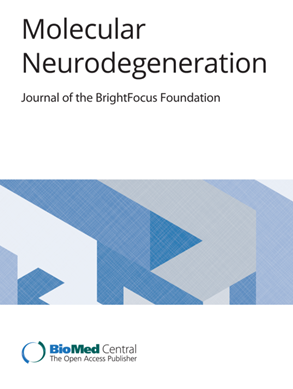阿尔茨海默病药物发现的宣言在疾病修饰疗法的时代
IF 17.5
1区 医学
Q1 NEUROSCIENCES
引用次数: 0
摘要
经过数十年的失望,自2021年以来,已有三种治疗阿尔茨海默病(AD)的疾病改善疗法获得批准。这些针对淀粉样蛋白β-蛋白(a β)的药物的临床数据迅速增长,证实了淀粉样蛋白级联假说是开发更有效治疗方法的分子路线图,并为其他ad相关聚集易感蛋白的药物治疗提供了模板。虽然关于阿尔茨海默病的分子病理学还有很多需要了解的地方,但目前的知识水平足以加快新药的交付。考虑到患者的迫切需求,我们建议优先在四个方向努力:完成Aβ的工作,加快和多样化对tau的努力,扩大对载脂蛋白E和synuclein的发现。对于每个目标,我们解释了科学前提、当前的努力和可能的新方法。在短期和中期,我们主张把重点放在更好地治疗这些已经得到充分验证的目标所需的技术创新上。虽然此次审查的重点是加快单一疗法的开发,但随后批准的此类药物将使最适合个体患者的附加或联合方法成为可能。本文章由计算机程序翻译,如有差异,请以英文原文为准。
A manifesto for Alzheimer’s disease drug discovery in the era of disease-modifying therapies
After decades of disappointment, three disease-modifying therapies for Alzheimer’s disease (AD) have been approved since 2021. Burgeoning clinical data on these amyloid β-protein (Aβ) targeting drugs validate the amyloid cascade hypothesis as a molecular roadmap for the development of yet more effective therapeutics and offer a template for drugging other AD-associated aggregation-prone proteins. While there remains much to be learned about the molecular pathology of AD, the current state of knowledge is sufficient to expedite the delivery of new drugs. Mindful of the urgent need of patients, we recommend prioritizing efforts in four directions: finishing the job on Aβ, accelerating and diversifying efforts on tau, and expanding discovery on apolipoprotein E and ⍺-synuclein. For each target, we explain the scientific premise, current efforts, and possible new approaches. In the short- and medium-term, we advocate focusing on the technical innovations required to better drug these already well validated targets. While the focus of this review is on expediating development of monotherapies, the subsequent approval of such agents will enable add-on or combination approaches best suited to individual patients.
求助全文
通过发布文献求助,成功后即可免费获取论文全文。
去求助
来源期刊

Molecular Neurodegeneration
医学-神经科学
CiteScore
23.00
自引率
4.60%
发文量
78
审稿时长
6-12 weeks
期刊介绍:
Molecular Neurodegeneration, an open-access, peer-reviewed journal, comprehensively covers neurodegeneration research at the molecular and cellular levels.
Neurodegenerative diseases, such as Alzheimer's, Parkinson's, Huntington's, and prion diseases, fall under its purview. These disorders, often linked to advanced aging and characterized by varying degrees of dementia, pose a significant public health concern with the growing aging population. Recent strides in understanding the molecular and cellular mechanisms of these neurodegenerative disorders offer valuable insights into their pathogenesis.
 求助内容:
求助内容: 应助结果提醒方式:
应助结果提醒方式:


